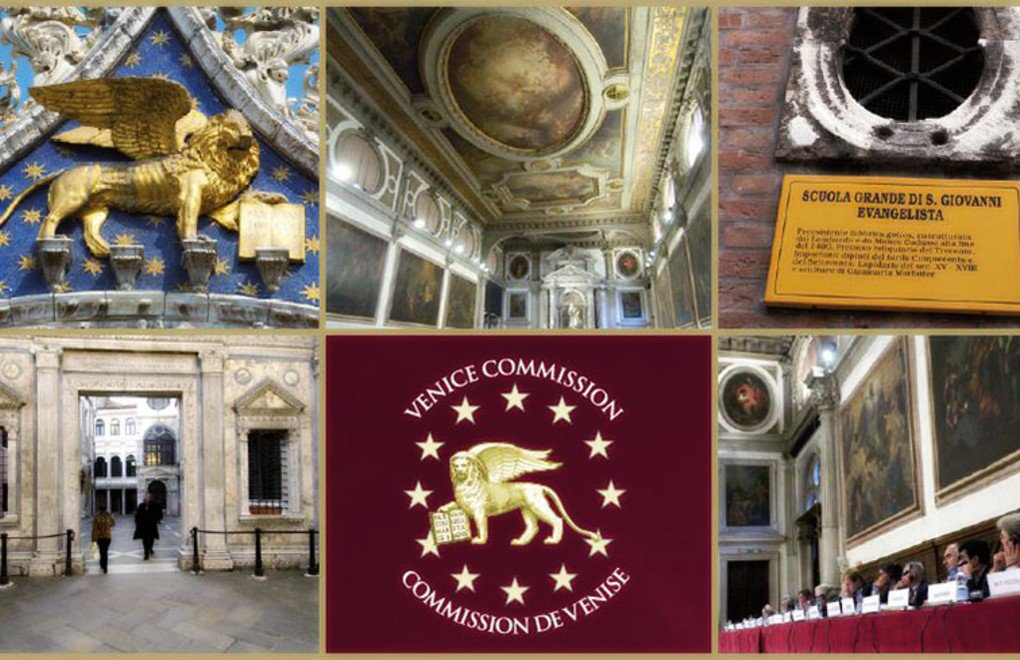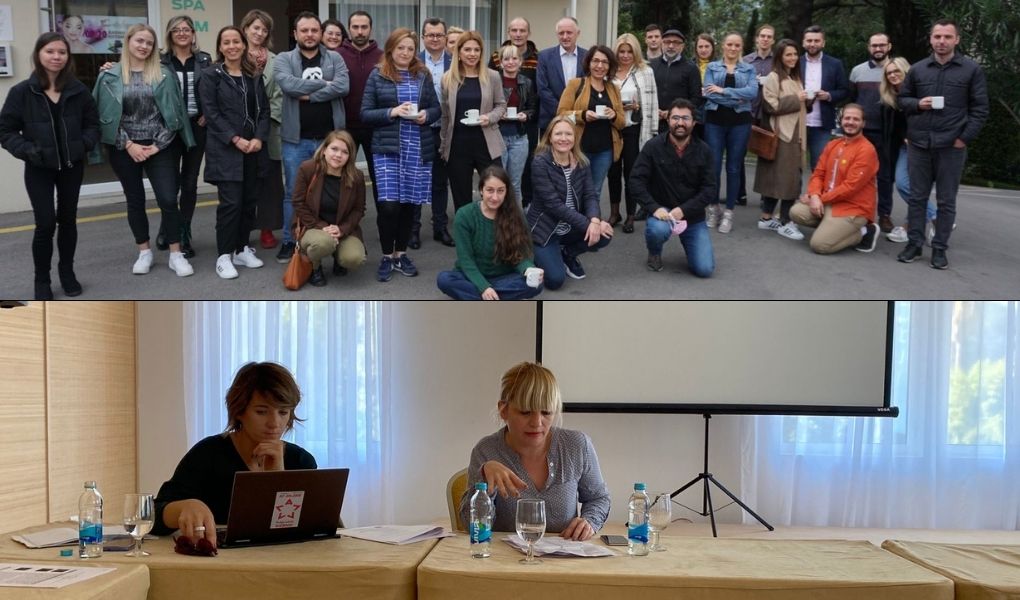* Photo: Venice Commission official website
Click to read the article in Turkish
The Venice Commission of the Council of Europe has adopted a legal opinion as to the replacement of elected candidates and mayors in Turkey.
The opinion was adopted yesterday (June 18) in response to a request sent by the Congress of Local and Regional Authorities at the end of 2019, concerning several decisions made by Turkey's state authorities after the last local elections in the country on 31 March, 2019.
Noting that the dismissal of elected candidates and mayors is "incompatible with basic principles of democracy," the opinion reads as follows:
'It must be based on evidence'
"The Venice Commission is aware of the terrorist threat in the South-Eastern part of Turkey. Such a threat may justify unusual measures, including the removal of elected officials who might use their office to favour terrorist activities. Any such measures must respect relevant legal provisions, be based on evidence, and be proportionate to the aim pursued.
'Ongoing effects of state of emergency'
Trustees to 45 of 65 municipalitiesIn the last local elections on March 31, 2019, the Peoples' Democratic Party (HDP) won 65 municipalities across Turkey. While trustees have been appointed to 45 of these municipalities, the certificates of elections of six elected mayors were not given as they had been discharged from public service by a Statutory Decree. HDP's 21 ousted co-mayors are currently behind bars. |
"The Venice Commission furthermore acknowledges, as it has done on previous occasions, that in the immediate aftermath of the failed coup attempt, when the Turkish authorities were confronted with a dangerous armed conspiracy, certain extraordinary measures may have been required in Turkey.
"That said, the state of emergency ended in 2018. It is a matter of concern that based on the framework of the emergency regime changes of a structural nature to the system of local government in place in Turkey have been introduced on a permanent basis.
"The necessity for these changes appeared doubtful even during the state of emergency. That concern is of course all the greater now that the state of emergency is at an end.
"The ongoing effects of the previous emergency regime give rise to 'serious concerns', according to the opinion.
"In addition, both sets of decisions are in the Venice Commission's opinion incompatible with basic principles of democracy – the respect for the free expression of the will of the voters and the rights of elected officials – and of the rule of law – including legality and legal certainty.
'Inconsistent decisions by Election Council'
"The decisions by the Supreme Election Council are inconsistent with international norms and standards and should be reversed.
"It is crucial for the proper functioning of democracy that the candidates who received the highest number of votes are deemed elected, and not second placed candidates from other political parties.
"The decisions by the Ministry of the Interior are based on state of emergency-rooted legislation, which allows for replacement of elected mayors by government officials. They undermine the very nature of local self-government and also should be repealed."
4 recommendations made in the opinion
The opinion adopted by the Venice Commission has also included the following recommendations:
- Make it clear in the law that ineligibility of an election candidate on the grounds of prohibition from public service requires a final criminal conviction by a court for a serious offence as well as an express decision on the candidate's ineligibility prior to the elections.
- Recognise as elected the six mayoral candidates who had received the highest number of votes during the local elections of 31 March 2019 in the district municipalities of Diyarbakır, Erzurum, Kars and Van but had been denied the mayoral mandate by decision of the Supreme Election Council of 11 April 2019.
- Reinstate the mayors of the three metropolitan cities Diyarbakır, Mardin, and Van who had been suspended by decision of the Ministry of the Interior of 19 August 2019; or implement an alternative solution which respects the will of the voters, such as allowing the respective municipal councils to choose a replacement mayor or providing for repeat elections in the electoral zones concerned.
- Repeal the amendments to Article 45, paragraph 1 of the Municipality Law which had first been introduced by Decree Law No. 674 and had been approved by Parliament in November 2016.
About Venice CommissionThe European Commission for Democracy through Law - better known as the Venice Commission as it meets in Venice - is the Council of Europe's advisory body on constitutional matters. The role of the Venice Commission is to provide legal advice to its member states and, in particular, to help states wishing to bring their legal and institutional structures into line with European standards and international experience in the fields of democracy, human rights and the rule of law. It also helps to ensure the dissemination and consolidation of a common constitutional heritage, playing a unique role in conflict management, and provides "emergency constitutional aid" to states in transition. The Commission has 62 member states: the 47 Council of Europe member states1 and 15 other countries (Algeria, Brazil, Canada, Chile, Costa Rica, Israel, Kazakhstan, the Republic of Korea, Kosovo, Kyrgyzstan, Morocco, Mexico, Peru, Tunisia and the USA). Argentina, Japan, Saint Siege and Uruguay are observers, Belarus has a status of an associate member state. The South African Republic and the Palestinian National Authority have a special cooperation status. The European Commission and OSCE/ODIHR participate in the plenary sessions of the Commission. Its individual members are university professors of public and international law, supreme and constitutional court judges, members of national parliaments and a number of civil servants. They are designated for four years by the member states, but act in their individual capacity. Gianni Buqicchio, Italy, has been President of the Commission since December 2009. The Commission works in three areas:
The Commission shares the standards and best practices adopted within the countries of the Council of Europe beyond its borders notably in neighboring countries. Its permanent secretariat is located in Strasbourg, France, at the headquarters of the Council of Europe. Its plenary sessions are held in Venice, Italy, at the Scuola Grande di San Giovanni Evangelista, four times a year (March, June, October and December). * Source: Venice Commission official website |
(PT/SD)




.jpg)





-132.jpg)




.jpg)